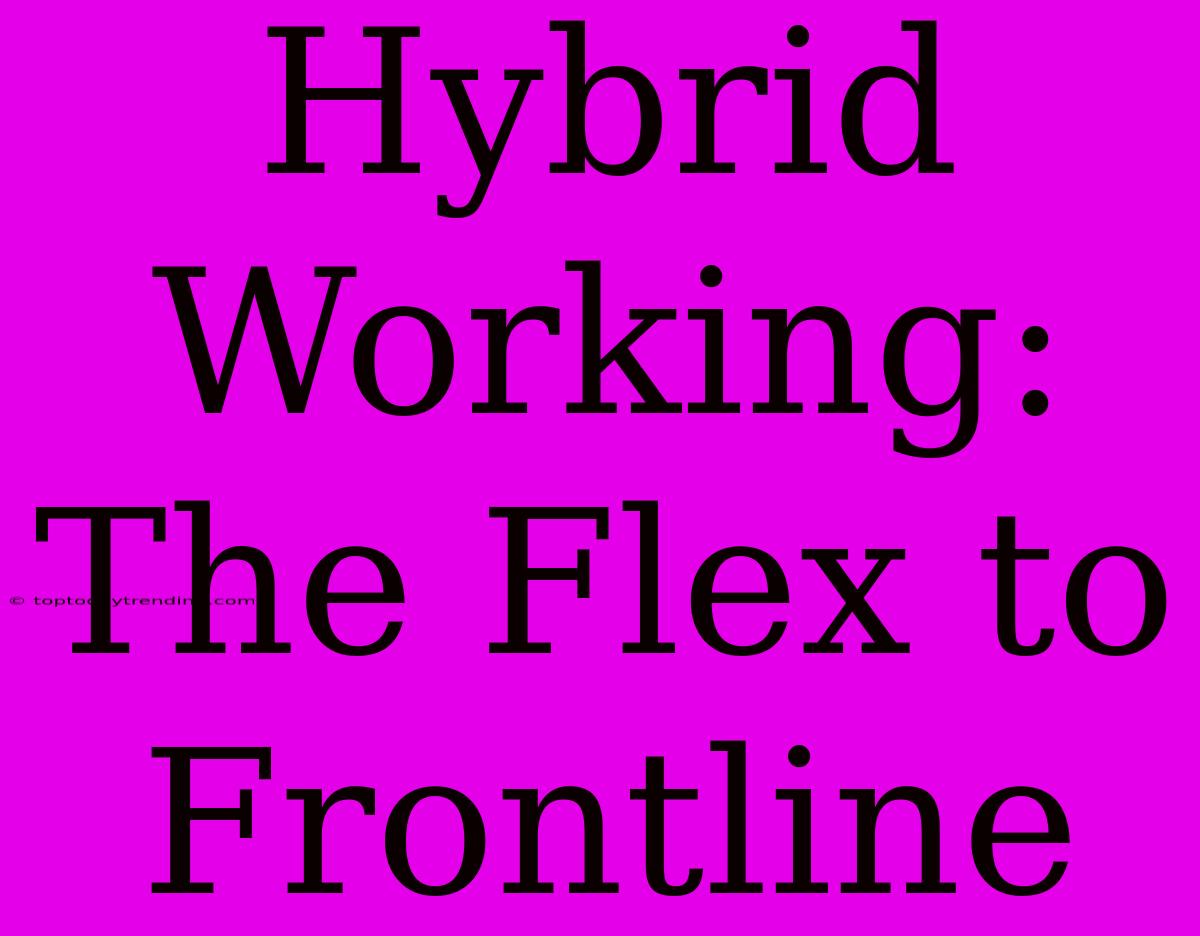Hybrid Working: The Flex to Frontline
The world of work is evolving rapidly, and the pandemic accelerated a trend that's here to stay: hybrid working. This new model, blending the best of office and remote work, is no longer a fringe benefit; it's becoming the new standard for many organizations. But the transition isn't simply about employees working from home a few days a week. It's a fundamental shift in how we think about work, requiring companies to adapt their processes, culture, and leadership to embrace flexibility.
Beyond the Buzzwords: Understanding the Hybrid Workplace
Hybrid work isn't just a fancy term for working from home. It's a multifaceted approach that requires a shift in mindset from both employers and employees.
- Flexible Schedules: Workers enjoy the autonomy to choose their work hours and locations, enabling better work-life balance.
- Enhanced Collaboration: Teams collaborate effectively using technology, ensuring seamless communication and project management.
- Focus and Productivity: Employees can work in environments that best suit their individual needs, promoting focus and productivity.
- Improved Well-being: The flexibility inherent in hybrid work reduces commute stress and allows employees to manage personal commitments, fostering well-being.
The Benefits of Hybrid Working: A Win-Win Scenario
Hybrid work isn't just a trend, it's a solution that benefits everyone involved.
For Employees:
- Improved Work-Life Balance: Juggling work and personal life is easier with flexible hours and locations.
- Increased Productivity: Working in a comfortable and focused environment boosts productivity.
- Enhanced Well-being: Reduced commute stress and greater control over schedules contribute to well-being.
- Greater Job Satisfaction: The freedom and flexibility of hybrid work can lead to higher job satisfaction.
For Employers:
- Increased Talent Pool: Access to a wider range of talent, geographically diverse and potentially more cost-effective.
- Improved Employee Retention: Attracting and retaining top talent becomes easier with flexible work arrangements.
- Reduced Operational Costs: Lower office space requirements and associated costs.
- Enhanced Productivity: Empowered employees who are happier and more comfortable are more productive.
The Challenges of Hybrid Working: Navigating the Transition
While hybrid work offers significant advantages, it comes with its own set of challenges that companies need to address.
- Maintaining a Cohesive Culture: Creating a sense of community and belonging when employees are geographically dispersed is crucial.
- Managing Technology and Security: Ensuring seamless collaboration and secure access to company data in a distributed workforce is critical.
- Communication and Collaboration: Developing effective communication strategies and tools for virtual teams is essential.
- Leadership Adaptability: Managers must adapt their leadership styles to effectively manage and motivate remote and hybrid teams.
Navigating the Hybrid Future: Tips for Success
Successfully implementing hybrid work requires a proactive approach and thoughtful planning.
- Clear Communication: Communicate your hybrid work policy clearly and transparently with your employees.
- Technology Investment: Invest in the right technology to support remote collaboration and communication.
- Training and Development: Provide training to employees and managers on best practices for virtual work.
- Culture Building: Foster a strong company culture that embraces inclusivity and collaboration, regardless of location.
- Flexible Leadership: Develop leadership styles that empower and support employees, both in the office and remotely.
The Hybrid Workplace: A New Era of Work
Hybrid work is more than just a new way of working; it's a new era of work. It's an opportunity to reimagine the future of work, creating a more flexible, productive, and fulfilling experience for both employees and employers. By embracing this new model, companies can unlock the potential of their workforce and thrive in the ever-evolving landscape of work. The future of work is flexible, and the future is hybrid.

